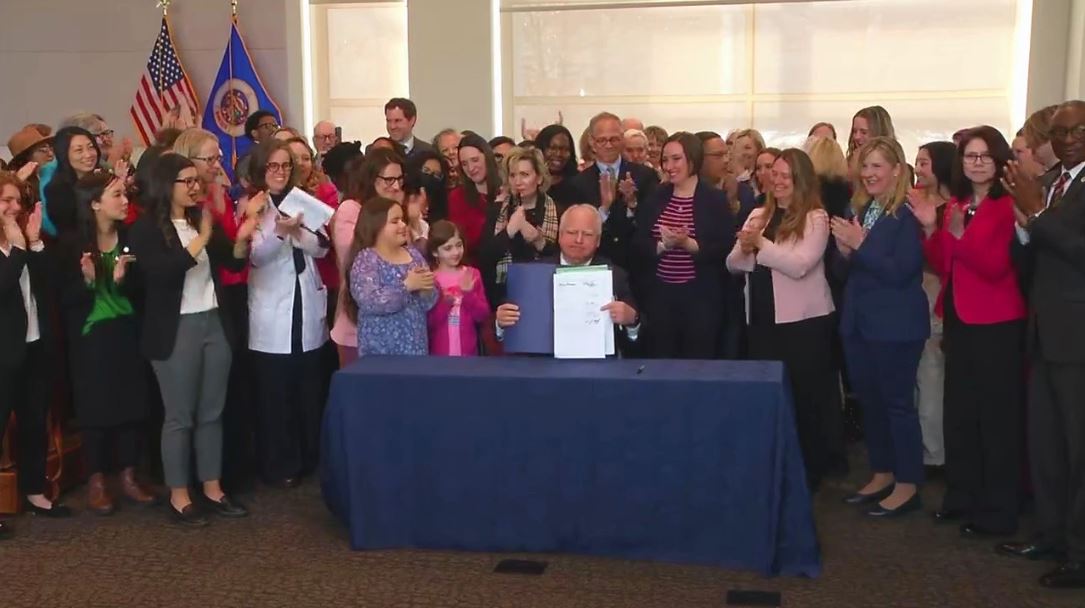Gov. Walz signs bill to protect reproductive rights in Minnesota

KSTP
Every Minnesotan now has the right to an abortion, after Gov. Tim Walz signed the PRO Act into law Tuesday.
The Protect Reproductive Options (PRO) Act establishes reproductive freedom as a fundamental right for every Minnesotan to make decisions about their own reproductive health, including the right to use or refuse reproductive health care, to continue a pregnancy and give birth, and to get an abortion.
“Last November, Minnesotans spoke loud and clear: They want their reproductive rights protected – not stripped away,” said Governor Walz. “Today, we are delivering on our promise to put up a firewall against efforts to reverse reproductive freedom. No matter who sits on the Minnesota Supreme Court, this legislation will ensure Minnesotans have access to reproductive health care for generations to come. Here in Minnesota, your access to reproductive health care and your freedom to make your own health care decisions are preserved and protected.”
“This is a truly historic day for our state. This legislation signals to Minnesotans and everyone across the country that your access to abortion and right to reproductive freedom will be protected here in Minnesota,” said Lieutenant Governor Flanagan. “This legislation ensures all Minnesotans, including our Black, Native, and LGBTQ+ neighbors, have the freedom to make their own health care decisions about their own bodies. I am proud to have stood in this fight alongside so many powerful women and will continue to fight to expand access to affordable and comprehensive reproductive health care for everyone across the state. I am proud to be a Minnesotan.”
The bill codifies protections for all reproductive health care, including but not limited to: contraception, sterilization, preconception care, maternity care, abortion care, family planning and fertility services, and counseling regarding reproductive health care. The bill also prohibits local units of government from regulating a person’s ability to freely exercise their fundamental right to reproductive health care.